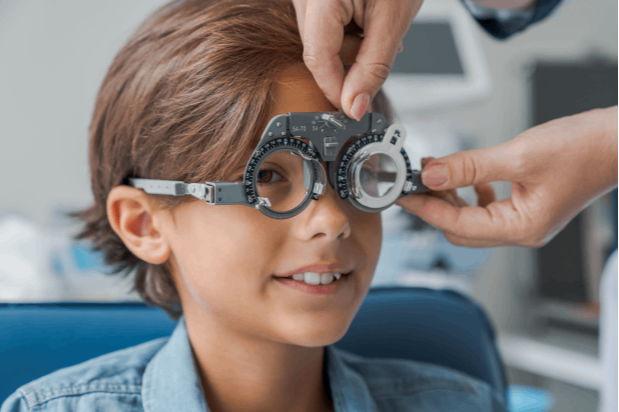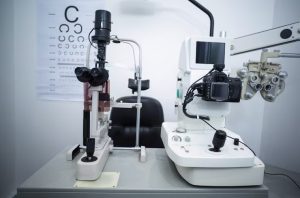All Categories
Featured
Taking care of get in touch with lenses is essential for preserving clear vision, guaranteeing convenience, and protecting your eyes from infections. Without correct care, lenses can gather particles and germs, potentially leading to significant eye difficulties. Here is a detailed overview to assist you establish a risk-free and reliable contact lens care routine.
Always clean your hands before managing your call lenses. Use a moderate, fragrance-free soap to stay clear of moving residue or bacteria to the lenses. Dry your hands with a lint-free towel to stop particles from staying with the lenses.
Cleaning your lenses is important for getting rid of deposits and avoiding infections:
Make Use Of a Multipurpose Solution: Carefully massage the lenses with your fingers in the hand of your hand utilizing fresh get in touch with lens solution. Also if the option is classified as "no-rub," rubbing aids get rid of particles extra efficiently.
Stay Clear Of Faucet Water: Never ever use faucet water to rinse or clean your lenses. It may have bacteria that can create serious infections.
Replace the Option Daily: Always usage fresh option to save your lenses. Do not "complement" old option in case.
Make use of a clean lens case created especially for saving call lenses.
After placing the lenses in the event, fill it with fresh solution.
Clean the lens situation daily with remedy and allow it air dry. Change your situation every three months to stay clear of microbial build-up.
![]()
Different lenses have different replacement timetables, such as day-to-day, bi-weekly, or monthly. Abide by your eye care specialist's recommendations and avoid wearing lenses beyond their suggested period.
Unless approved by your doctor, do not oversleep contact lenses. Sleeping in lenses limits oxygen circulation to the corneas, raising the danger of eye infections and discomfort.
Maintain your lenses far from water sources, consisting of faucet water, swimming pools, and hot tubs. If you take part in water tasks, put on prescription goggles or eliminate your lenses ahead of time.
Never ever wear torn or harmed lenses, as they can aggravate your eyes or cause scratches on the corneal surface. Constantly have extra lenses readily available to avoid interruptions in vision correction.
Insert lenses prior to applying makeup to minimize the risk of moving bits to the lenses.
Stay clear of making use of water-proof or oil-based products near the eyes.
![]()
Remove your lenses prior to removing makeup to avoid irritability.
If you experience inflammation, inflammation, obscured vision, or discomfort, eliminate your lenses instantly and consult your eye care professional. Early intervention can stop more significant issues.
![]()
Normal check-ups ensure your prescription continues to be precise and your lenses fit properly. Educate your optometrist of any kind of pain or changes in vision.
Conclusion
By following these steps, you can protect your eyes and make the most of the convenience and performance of your contact lenses. Proper care not only enhances your experience but likewise reduces the risk of difficulties. Always consult with your eye treatment provider for individualized advice and follow their referrals for optimal outcomes.
- Clean Your Hands Thoroughly
Always clean your hands before managing your call lenses. Use a moderate, fragrance-free soap to stay clear of moving residue or bacteria to the lenses. Dry your hands with a lint-free towel to stop particles from staying with the lenses.
- Clean and Disinfect Lenses Daily
Cleaning your lenses is important for getting rid of deposits and avoiding infections:
Make Use Of a Multipurpose Solution: Carefully massage the lenses with your fingers in the hand of your hand utilizing fresh get in touch with lens solution. Also if the option is classified as "no-rub," rubbing aids get rid of particles extra efficiently.
Stay Clear Of Faucet Water: Never ever use faucet water to rinse or clean your lenses. It may have bacteria that can create serious infections.
Replace the Option Daily: Always usage fresh option to save your lenses. Do not "complement" old option in case.
- Proper Lens Storage
Make use of a clean lens case created especially for saving call lenses.
After placing the lenses in the event, fill it with fresh solution.
Clean the lens situation daily with remedy and allow it air dry. Change your situation every three months to stay clear of microbial build-up.
- Adhere To Putting On Routines

Different lenses have different replacement timetables, such as day-to-day, bi-weekly, or monthly. Abide by your eye care specialist's recommendations and avoid wearing lenses beyond their suggested period.
- Stay Clear Of Resting in Lenses
Unless approved by your doctor, do not oversleep contact lenses. Sleeping in lenses limits oxygen circulation to the corneas, raising the danger of eye infections and discomfort.
- Prevent Water and Wetness
Maintain your lenses far from water sources, consisting of faucet water, swimming pools, and hot tubs. If you take part in water tasks, put on prescription goggles or eliminate your lenses ahead of time.
- Replace Damaged Lenses
Never ever wear torn or harmed lenses, as they can aggravate your eyes or cause scratches on the corneal surface. Constantly have extra lenses readily available to avoid interruptions in vision correction.
- Be Mindful of Makeup
Insert lenses prior to applying makeup to minimize the risk of moving bits to the lenses.
Stay clear of making use of water-proof or oil-based products near the eyes.

Remove your lenses prior to removing makeup to avoid irritability.
- Expect Indications of Trouble
If you experience inflammation, inflammation, obscured vision, or discomfort, eliminate your lenses instantly and consult your eye care professional. Early intervention can stop more significant issues.
- Set Up Regular Eye Exams

Normal check-ups ensure your prescription continues to be precise and your lenses fit properly. Educate your optometrist of any kind of pain or changes in vision.
Conclusion
By following these steps, you can protect your eyes and make the most of the convenience and performance of your contact lenses. Proper care not only enhances your experience but likewise reduces the risk of difficulties. Always consult with your eye treatment provider for individualized advice and follow their referrals for optimal outcomes.
Latest Posts
Choosing the Right Roofing System Shade: Impact on Energy Performance
Published May 14, 25
1 min read
Necessary Fence Upkeep Tips for Long Life
Published May 14, 25
1 min read
Reliable Commercial Roofing Services by Weathercraft
Published May 14, 25
1 min read